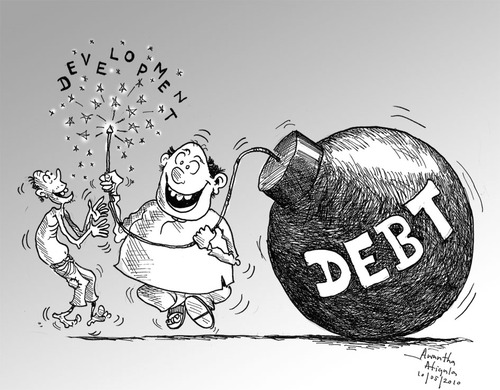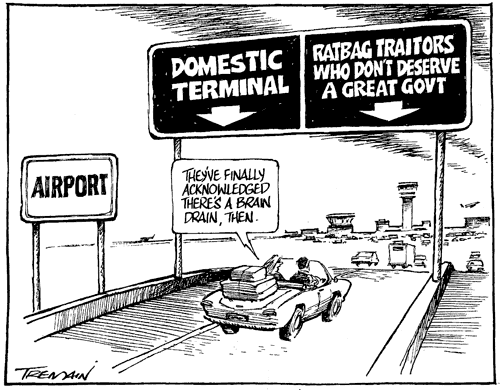"Thats a shitload of sand to vacuum."
In the blue corner, we have a maid whose face was branded with an iron. In the red corner, we have a maid who took off with half a million worth of luxury goods. Ready?
Fight.
This issue has been dragging on long enough to affect Malaysia and Indonesia's political dance; which has been devoid of any romance since the day Malaysia was formed. On one hand we have the Malaysians who actually need the assistance of maids to do the daily chores while the parents get off for work whereas on the other, Indonesians who are in dire need of a job - any job. But let us ask ourselves this one question first before we go deeper into the topic;
Do most Malaysians who claim that they need the service of maids actually need it, or are they just blatantly lazy? Or perhaps the main question is; because the services cheap enough, Malaysians have developed this perception that the price in which they pay can is worth the free time and hassle they receive in return? Fine, I lied; there's more than just one question.
Looking through the articles in which I've gathered, here we have issues such as maids getting ripped off by agencies, and making agencies reimburse clients due for unsatisfactory service provided, at the same time protecting maids' rights.
Yesterday I bumped into this article, where towards the end, it mentioned a very good point on how hiring maids results in children growing up without knowing how to perform simple tasks. I couldn't agree more or this; the over-reliance on maids has resulted in Malaysia developing a mentality where having maids in each household is the norm; without it a family becomes dysfunctional - ridden with simple tasks. Now can you categorize this as a form of "outsourcing" ? or do you reckon its just a way of dealing with laziness?
Personally I don't think its a form of outsourcing; laziness would probably be the primary driver. Much like how the industry would rather source cheap foreign workers (at the same time higher productivity) compared to hiring local staff. Can we blame them on this? Doubt it; but to the least there should be some control over the amount of maids being brought into the country, in order that we can curb the over-dependance on maids.
Question is; are we capable of doing it?









